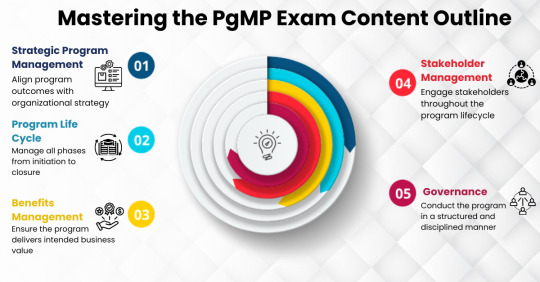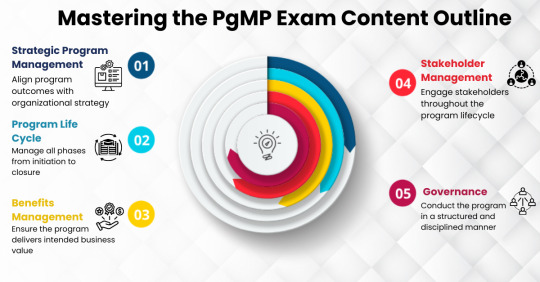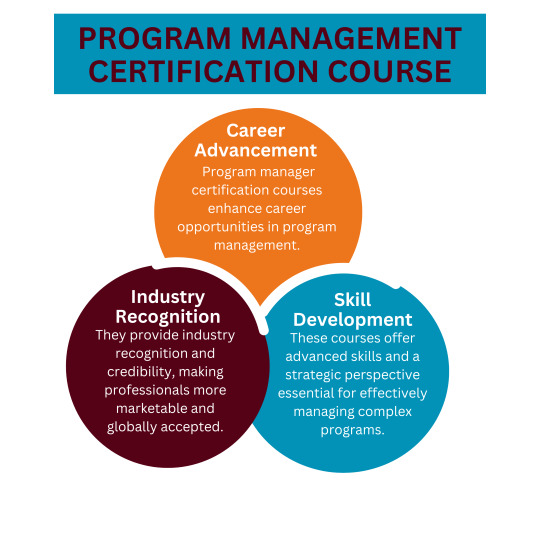#programmanagement
Explore tagged Tumblr posts
Text
Businesses are constantly juggling multiple projects, initiatives, and transformations. To keep everything on track and ensure alignment with strategic goals, many companies establish a Project Management Office (PMO) or an Enterprise Project Management Office (EPMO).
These two entities might sound similar and they do share some overlapping functions, but their scope, responsibilities, and impact are notably different.
So, when comparing PMO vs EPMO, what exactly are we looking at? Why do some organizations start with a PMO and later evolve into an EPMO? And how can understanding the difference help your organization thrive?
In this blog we will explore the roles, relevance of both PMOs and EPMOs, and help you determine what’s right for your business landscape.
#PMO#EPMO#PMOvEPMO#ProjectManagement#EnterpriseStrategy#PortfolioManagement#BusinessAlignment#Leadership#ChangeManagement#Transformation#Governance#StrategyExecution#AgileEnterprise#ProgramManagement#DigitalLeadership
0 notes
Text
Best Loyalty Program Management Solution In India
We are a team of loyalty program experts delivering innovative, tech-driven solutions across diverse industries like finance, healthcare, retail, e-commerce, travel, hospitality, etc. From customer and influencer programs to employee rewards, our mission is to help brands grow stronger through customized loyalty strategies that boost retention, engagement and long-term success.
0 notes
Text
Driving Business Transformation Through Leadership Coaching and Program Excellence Welcome! I am an ICF PCC Certified Coach with over 26 years of experience in the Information Technology industry, specializing in transforming businesses, empowering leaders, and driving strategic change.
Having partnered with global organizations like Visa, PayPal, and others, I’ve led impactful programs and transformations that deliver meaningful, lasting results.
My expertise lies at the intersection of business transformation, program management, and leadership development. Whether coaching senior leaders, guiding teams, or orchestrating large-scale programs, I bring a unique blend of strategic thinking and human-centered leadership to every challenge.
#BusinessTransformation#LeadershipCoaching#ProgramManagement#ICFCoach#SriharshaSriram#StrategicChange
0 notes
Text
youtube
Results-Based Program Management - A Revolution in the Development Sector?
Are you ready to be part of a revolution in program management for the development sector?
Gaurav Shah, Co-Founder of ISDM, introduces the Results-Based Program Management (RBPM) course—a unique program that brings together funders, programmatic partners, and stakeholders to co-create impactful solutions for measurable change.
The RBPM course empowers participants to develop common perspectives for effective collaboration, design and implement programs with shared metrics for success and achieve maximum impact through collaboration.
With two successful cohorts already graduated, this course is transforming the social sector ecosystem by aligning diverse stakeholders for scalable and sustainable development outcomes.
If you’re passionate about making a real difference in the world and solving programs that truly matter, the RBPM course is for you!
Admissions for the RBPM program are now open and we are about to begin the next cohort soon! Learn more about the curriculum, faculty, and life at ISDM: https://bit.ly/420wZeo
#RBPM#SocialImpact#ISDM#DevelopmentSector#ProgramManagement#LeadershipForImpact#ProgramManagementForTheSocialSector#DevelopmentManagement#SustainableDevelopment#ResultsDrivenImpact#ChangeMakers#DevelopmentLeadership#StrategicCapacityBuilding#YoungProfessionals#UpskillingForImpact#ImpactAtScale#UpskillingInSocialSector#LeadWithPurpose#PurposeDrivenPrograms#ScalingImpact#SCB#CapacityBuildingForSocialSector#Youtube
0 notes
Text
What is the Interesting Role of a Program Officer?

The role of a program officer is dynamic, challenging, and rewarding. Whether working within a Program Management Office, pursuing a career as an Assistant Program Officer, or exploring advanced opportunities, the profession offers immense growth potential. By combining the right skills, experience, and educational qualifications, individuals can not only excel in their roles but also drive transformative change within their organisations.
Read More.
0 notes
Text
Boost your potential with our affordable program management self-paced program, designed for busy professionals who want to make an impact without sacrificing quality.Busy workers may struggle to find time to continue their education. Self-paced program let you study whenever it’s convenient for you.Join Augment Consultancy to take advantage of our self-paced program management courses and other professional development opportunities.
0 notes
Text
Mastering the PgMP Exam Content Outline: Your Guide to Success

Unlock the secrets to taking the PgMP exam with our in-depth guide. This blog delves into the PgMP Exam Content Outline, exploring the five critical performance domains: Strategic Program Management, Program Life Cycle, Benefits Management, Stakeholder Management, and Governance. Gain valuable insights and practical tips to help you prepare, practice, and achieve program management excellence. Whether you're a seasoned program manager or aspiring to become one, this guide will equip you with the knowledge and strategies needed for success.
0 notes
Text
Mastering the PgMP Exam Content Outline: Your Guide to Success
Introduction
Earning Program Management Professional (PgMP)® certification is a key milestone for any program manager. The Project Management Institute (PMI) offers the PgMP certificate for professionals managing complex projects to achieve strategic business goals. The PgMP Test Case Study is a key component of PgMP certification, which provides a comprehensive framework of the knowledge and skills required for effective program management. This blog will explore the key elements of the PgMP Exam Outline and provide tips for optimizing each area.
Understanding the PgMP Exam Content Outline
The PgMP Test Data System is divided into five work areas, each representing an important area of system management. These domains are:
Strategic Program Management
Program Life Cycle
Benefits Management
Stakeholder Management
Governance

1. Strategic Program Management
Overview
Strategic planning focuses on aligning program outcomes with organizational strategy. This area emphasizes strategic objectives, identifying benefits, and staying consistent throughout the life of the program.
Key Tasks
Start by defining the program.
Create a system management plan.
Ensure consistency with organizational policy.
Monitor and monitor program progress.
Tips for Success
Develop a deep understanding of your organization’s strategic goals.
Use it to create a complete system management plan.
Keep abreast of industry trends and how they affect strategic objectives.
2. Program Life Cycle
Overview
The project life cycle area covers the stages from project initiation to completion. Ensures that all aspects of program management are addressed systematically.
Phases
Start: Setting up the program.
Planning: A detailed program plan.
Functions: Resource and stakeholder management.
Control: Monitoring and controlling the performance of the program.
Completion: Completion of all program activities.
Tips for Success
Familiarize yourself with the detailed procedures in each category.
Use case studies to understand how to handle various stages of the process best.
To have strong skills in resource management and operations management.
3. Benefits Management
Overview
Benefits management ensures that the program delivers the intended business value and benefits. This area is essential to justify the investment in the system and demonstrate its value to stakeholders.
Key Tasks
Describe and quantify the benefits.
Plan for benefits.
Monitor and report profitability.
Make sure the benefits are sustainable.
Tips for Success
Learn to create clear and measurable benefit statements.
Use tools and techniques to track and report profitability.
Create a strong benefits plan.
4. Stakeholder Management
Overview
Stakeholder management requires identifying and effectively engaging stakeholders throughout the project lifecycle. It ensures that stakeholders’ expectations are met and needs are met.
Key Tasks
Identify stakeholders and analyze their interests and impact.
Develop and implement stakeholder plans.
Communicate effectively with stakeholders.
Manage stakeholder expectations and conflicts.
Tips for Success
Improve your communication and communication skills.
Use stakeholder analysis techniques to map and prioritize stakeholders.
Mechanisms have been developed to manage stakeholder conflicts.
5. Governance
Overview
The government ensures that the program is conducted in an orderly and disciplined manner. Establishes policies, procedures, and metrics to monitor program performance and ensure compliance.
Key Tasks
Establish governance structures.
System metrics and reporting mechanisms should be developed.
Ensure that the system meets organizational policies and standards.
Conduct regular program reviews and audits.
Tips for Success
Understand the types of governance structures and their functions.
Use it to organize program metrics and dashboards.
Stay updated on organizational policies and compliance requirements.
Conclusion
Mastery of the PgMP exam data set requires a method of study and preparation. By understanding and focusing on each business phase, you can build the knowledge and skills needed to excel in exams and advance your career in program management certification. Remember, thoroughly understanding consistency and process management principles is key to earning the prestigious PgMP certification.
#PgMP#ProgramManagement#PMI#ProjectManagement#PgMPExam#ProgramManager#BenefitsManagement#StakeholderManagement#Governance#StrategicManagement
0 notes
Text
What is a Program Management Officer?
A Program Management Officer (PMO) is a professional responsible for overseeing the planning, execution, and delivery of a group of related projects. They operate at a level above individual projects, focusing on broader strategy, coordination, resource optimization, and governance.
It’s important to note that the acronym PMO is also used to describe a Project Management Office, which is a department that standardizes project management processes. However, in this context, we're focusing on Program Management Officer, the individual who drives and ensures the success of a program.
Think of the PMO as the conductor of an orchestra. Each project team (instrument section) may be playing their own part, but the PMO ensures that everything is in sync, aligned, and heading toward the same overall performance (organizational goal).
#ProgramManagement#ProjectManagement#PMO#ProgramManager#BusinessStrategy#ProjectSuccess#Leadership#RiskManagement#StakeholderEngagement#AgileProgramManagement#ProjectGovernance#StrategicPlanning#DigitalTransformation#ProgramDelivery#ManagementCareers
0 notes
Text

Are you looking to advance your project management skills? APTRON Solutions in Gurgaon offers top-tier MSP (Managing Successful Programmes) training designed to equip professionals with the expertise to manage complex projects and programs effectively. Whether you're a project manager, team leader, or an aspiring professional aiming to elevate your career, MSP training provides the tools and methodologies necessary to ensure successful project outcomes. APTRON Solutions stands out as a premier MSP training institute in Gurgaon due to our commitment to excellence and personalized training approach.
#MSPTraining#ProjectManagement#Gurgaon#APTRONSolutions#ProfessionalDevelopment#CareerGrowth#ProgramManagement#CertificationCourse#ProjectManager#SkillsTraining
0 notes
Text
Master Multi-Project Tracking: Why Celoxis Reigns Supreme as Program Management Software in 2025
#programmanagemenetsoftware#programmanagement#pmosoftware#project manager software#best project management software
0 notes
Text

Attention experts! Are you ready to leverage your skills and knowledge to drive real change in the business world?
Join our dynamic team as a Consultant and become part of a collaborative environment where your expertise will shape the future of our client's success. As a Consultant, you'll have the opportunity to showcase your talents, contribute to innovative solutions, and be at the forefront of industry transformation.
Don't miss this chance to make a meaningful impact while advancing your career.
#Business Analysis#Entrepreneurship#BusinessCommunications#StrategicCommunications#InternalCommunications#BusinessManagement#CustomerSupport#BusinessCoaching#ProgramManagement#ChangeManagement#CorporateCommunications#SmallBusiness#StartupDevelopment#ProductManagement#FacilityManagement
0 notes
Text

#pgmp certification#program management certification#project management#program maagement professional#programmanagement#program management professional#program management certification course
0 notes
Text
youtube
Pavitra Umashankar | Results Based Program Management | Strategic Capacity Building | ISDM
Are you curious about what makes RBPM's learning approach so hands-on and engaging?
Pavitra Umashankar, a Cohort 1 participant, shares insights on the program’s practical, applied pedagogy.
“We get to design monitoring tools and Logical Framework Matrices on the go during the sessions,” says Pavitra, highlighting the program’s focus on real-world application.
Ready to drive meaningful change in the social sector? Join ISDM's Results-Based Program Management Certificate Program and gain the skills to make a lasting impact.
Admissions for the next cohort open soon!
To know more, visit https://www.isdm.org.in/results-based
#RBPM#SocialImpact#ISDM#DevelopmentSector#ProgramManagement#LeadershipForImpact#ProgramManagementForTheSocialSector#DevelopmentManagement#SustainableDevelopment#ResultsDrivenImpact#ChangeMakers#DevelopmentLeadership#CapacityBuilding c#UpskillingForImpact#ImpactAtScale#UpskillingInSocialSector#LeadWithPurpose#PurposeDrivenPrograms#ScalingImpact#SCB#CapacityBuildingForSocialSector#Youtube
0 notes
Text
Boosting Local Revenue, Gustam: Maximize Existing Potential
Boosting Local Revenue, Gustam: Maximize Existing Potential #BoostLocalRevenue #ExecutiveMaximization
Hargo.co.id, GORONTALO – DPRD Gorut member Gustam Ismail hopes the executive branch will maximize existing potential to boost Local Revenue (PAD). Gustam states that the current regional budget is minimal, urging the executive government to be savvy in budget and program management. “It cannot be denied that the current regional budget is minimal, impacting development and other programs…

View On WordPress
#BoostLocalRevenue#CommunityImpact#ExceedingTargets#ExecutiveMaximization#GorutDPRD#GustamIsmail#InnovationCommunication#PADMaximization#ProgramManagement#RegionalBudget#RegionalDevelopment
0 notes
Text
The Strategic Role of Program Management in Achieving Organizational Success

Organizations today increasingly recognize the importance of effective program management to drive success. It is a strategic approach that involves overseeing and coordinating multiple related projects to achieve a common set of goals and objectives. This article explores the key concepts, benefits, and challenges associated with program management, shedding light on its pivotal role in ensuring organizational success.
Understanding Program Management
Program management goes beyond traditional project management by focusing on the interdependencies between projects and aligning them with the overarching strategic objectives of the organization. A program is a collection of projects that are managed and coordinated together to achieve maximum efficiency and effectiveness. Unlike projects with well-defined scopes and timelines, programs are often ongoing and may evolve to adapt to changing circumstances.
The Three Pillars
1. Strategic Alignment
It starts with a clear understanding of the organization’s strategic objectives. A successful program aligns its goals with the broader mission and vision of the company, ensuring that every project within the program contributes to the overall success of the organization. This alignment is crucial for prioritizing resources and efforts towards initiatives that truly matter to the organization’s long-term success.
2. Governance and Oversight
Program governance involves establishing structures and processes to guide decision-making and ensure accountability. This includes defining roles and responsibilities, establishing communication channels, and implementing mechanisms for monitoring and controlling progress. Effective governance helps in mitigating risks, resolving conflicts, and ensuring that the program stays on course.
3. Benefits Realization
Ultimately, the success of a program is measured by the benefits it delivers to the organization. These benefits can be tangible, such as increased revenue or cost savings, or intangible, such as improved customer satisfaction or enhanced brand reputation. Program managers must actively monitor and measure the outcomes of the program to ensure that the intended benefits are realized.
Benefits
1. Enhanced Strategic Focus

It ensures that projects are aligned with the organization’s strategic objectives, allowing for a more focused and purposeful allocation of resources. This strategic alignment helps organizations prioritize initiatives that contribute most significantly to long-term success.
2. Improved Resource Allocation
By coordinating and optimizing resources across multiple projects, program management helps organizations avoid duplication of efforts and efficiently allocate resources where they are needed the most. This leads to better cost control and resource utilization.
3. Better Risk Management
Programs often involve a higher level of complexity and uncertainty than individual projects. Program managers are equipped to identify, assess, and mitigate risks at both the project and program levels, reducing the likelihood of unexpected challenges derailing the organization’s objectives.
4. Stakeholder Engagement
Effective program management involves engaging stakeholders at various levels, ensuring that their interests and concerns are addressed. This proactive communication fosters a sense of ownership and commitment among stakeholders, creating a supportive environment for successful program delivery.
What are the Challenges?
While the benefits of program management are substantial, implementing and executing successful programs come with their own set of challenges. Some common challenges include:
1. Complexity
Programs are inherently complex due to the interdependencies between projects. Managing this complexity requires a strategic mindset, strong leadership, and effective communication to ensure all stakeholders understand the big picture.
2. Change Management

Programs often involve organizational change, and managing this change is critical to success. Program managers must navigate resistance, communicate effectively, and ensure that the organization is ready to adapt to the changes brought about by the program.
3. Resource Constraints
Balancing resources across multiple projects within a program can be challenging. Program managers must constantly evaluate resource needs, prioritize tasks, and make informed decisions to optimize resource allocation.
4. Uncertain Environment
The business environment is constantly evolving, and programs must be flexible enough to adapt to changes in market conditions, technology, and other external factors. This requires agility and the ability to make informed decisions in the face of uncertainty.
Scaling Operations and Efficiency
Program management plays a pivotal role in scaling operations and enhancing overall efficiency within an organization. By bundling related projects under a program umbrella, redundant processes can be identified and streamlined, leading to greater efficiency. Standardizing procedures across projects also facilitates knowledge sharing and best practices, reducing the learning curve for teams involved in different aspects of the program.
Continuous Improvement
Program managers, armed with a holistic view of the organization’s initiatives, are well-positioned to foster a culture of continuous improvement. Regular evaluations and assessments of both individual projects and the program as a whole provide valuable insights. These insights can be used to refine processes, update strategies, and implement lessons learned, contributing to the organization’s overall growth and adaptability.
Innovation and Creativity

In today’s competitive landscape, innovation is a key driver of success. Program managers can create collaboration and cross-functional communication, creating an environment conducive to innovation. The synergy generated within a program can spark creative solutions to complex problems, leading to breakthroughs that might not be achievable through isolated project management.
Stakeholder Collaboration
Successful management involves active engagement with stakeholders at various levels. This collaboration ensures that the diverse needs and expectations of stakeholders are understood and considered throughout the program’s lifecycle. By fostering strong relationships with internal and external stakeholders, program managers can garner crucial support, paving the way for smoother project execution and increased stakeholder satisfaction.
Conclusion:
Program management stands as a linchpin in an organization’s strategic arsenal, fostering collaboration, innovation, and efficiency. By addressing challenges, such as complexity, change management, and resource constraints, program managers contribute significantly to an organization’s ability to thrive in today’s competitive landscape.
Also Read: Maximizing Receivables Performance Management: Strategies for Success
0 notes